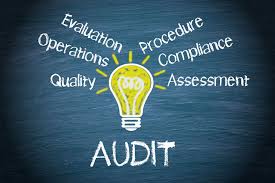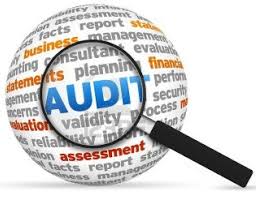12 Objectives of Audit to your Business
Definition
An audit is a systematic and independent examination of books, accounts, statutory records, documents and vouchers of an organization to ascertain how the financial statements, as well as non-financial disclosures present a true and fair view of the organization. Objectives of Audit to your Business can not be over emphasized.
Auditing is a means of evaluating the effectiveness of a company’s internal controls. Maintaining an effective system of internal controls is vital for achieving a company’s business objectives. As a result of this, it must be treated with high priority. In obtaining reliable financial reporting on its operations, as it consequently, preventing fraud and misappropriation of its assets, and minimizing its cost of capital. Both internal and independent auditors contribute to a company’s audit system in different but important ways, so therefore, audit is very key to the going concern of every organisation.
Audit is also seen as an official inspection of financial, performance, environmental or operational activities of an entity (private or corporate).
Having an effective audit system is important for a company because, it enables it to pursue and attain its various corporate objectives. Business processes need various forms of internal control to facilitate supervision and monitoring, prevent and detect irregular transactions, measure ongoing performance. It also help to maintain adequate business records and to promote operational productivity. Audit review the design of the internal controls and informally propose improvements, and document any material irregularities to enable further investigation by management.

SOW Professional
Types of Audit
In general, an audit is an investigation of an existing system, report, or entity. There are a number of types of audits that can be conducted, including, but, not limited to the following:
-
Financial Audit
This is an analysis of the fairness of the information contained within an entity’s financial statements. It is conducted by an audit firm, which is independent of the entity under review. This is the most commonly conducted type of audit.
-
Compliance Audit
This is an examination of the policies and procedures of an entity or department, to see if it is in compliance with internal or regulatory standards. This audit is most commonly used in regulated industries or educational institutions.
-
Construction Audit
This is an analysis of the costs incurred for a specific construction project. The intent is to ensure that the costs incurred for a project were reasonable.
-
Information Systems Audit
This involves a review of the controls over software development, data processing, and access to computer systems.
-
Investigative Audit
This is an investigation of a specific area or individual when there is a suspicion of inappropriate or fraudulent activity. The intent is to locate and remedy control breaches, as well as to collect evidence in case charges are to be brought against someone.
-
Operational Audit
. This is a detailed analysis of the goals, planning processes, procedures, and results of the operations of a business. The audit may be conducted internally or by an external entity. The intended result is an evaluation of operations, likely with recommendations for improvement.
- Tax audit. This is an analysis of the tax returns submitted by an individual or business entity, to see if the tax information and any resulting income tax payment is valid. These audits are usually targeted at returns that result in excessively low tax payments, to see if an additional assessment can be made.

objectives of audit to your business
-
A forensic Audit
This is an examination and evaluation of a firm’s or individual’s financial information for use as evidence in court. A forensic audit can be conducted in order to prosecute a party for fraud, embezzlement or other financial claims
Objectives of Audit to your Business
- Examining the system of internal check.
- Checking arithmetical accuracy of books of accounts, verifying posting, casting, balancing etc.
- Verifying the authenticity and validity of transactions.
- Checking the proper distinction between capital and revenue nature of transactions.
- Confirming the existence and value of assets and liabilities.
- Verify whether all the statutory requirements are fulfilled or not.
- Proving true and fairness of operating results presented by income statement and financial position presented by the balance sheet.
- Detection and prevention of errors: Errors are those mistakes which are committed due to carelessness or negligence or lack of knowledge or without having vested interest.
- Detection and prevention of frauds: Frauds are those mistakes which are committed knowingly with some vested interest in the direction of top-level management.
- Under-or over-valuation of stock: Normally such frauds are committed by the top level executives of the business. So, the explanation is given to the auditor also remains false. So, an auditor should detect such frauds using skill, knowledge, and facts.
- To provide information to income tax authority.
- To satisfy the provisions of the Company’s Act.
For more information:
At SOW Professional Services, we understand the benefits of audit to organisations and can assist you with the process. Call us on 07038254989 or send a mail to care@sowprofessional.com
Whassapp: 07038254989
Leave a Reply
You must be logged in to post a comment.




Great article. Keep up the fantastic work.
Thank you for your kind comment
I am really pleased to say it’s an interesting post to read.
I learn new information from your articl, youu are doing a great job.
Best regards,
Lunding Henneberg
Dear Sir,
We are glad that our information is of great use to you, we thank you for your feedback and also wish you can get across for further supports.